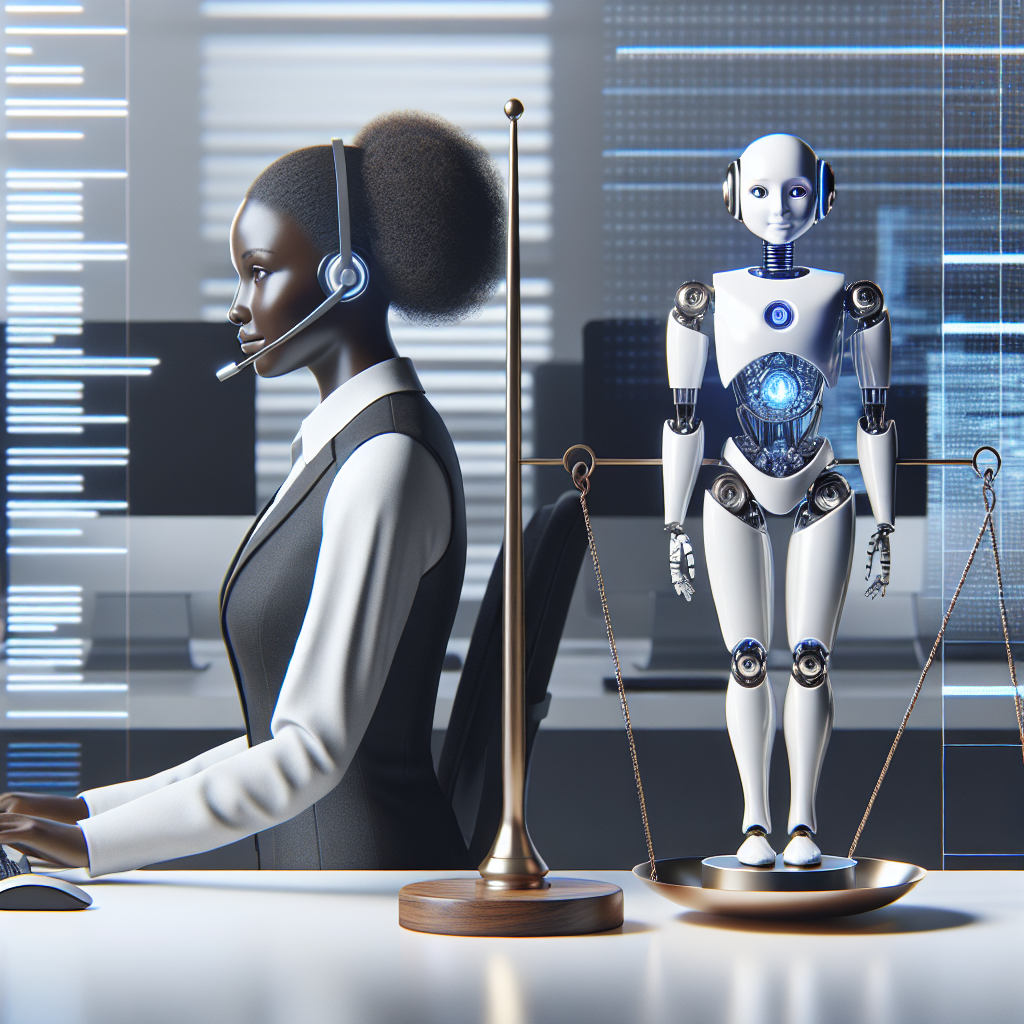In today’s fast-paced world, customer service is more important than ever. With the rise of e-commerce and online shopping, customers expect quick and efficient support when they have questions or issues with a product or service. This has led many companies to turn to AI chatbots as a way to provide instant assistance to their customers.
AI chatbots are computer programs that use artificial intelligence to simulate conversation with human users. They can be programmed to answer frequently asked questions, provide product recommendations, and even help with troubleshooting issues. Chatbots are available 24/7, which means that customers can get help at any time of day or night.
Human agents, on the other hand, are real people who are trained to provide customer support. They can offer a more personalized and empathetic experience than chatbots, and can often resolve more complex issues that require human intervention. However, human agents are limited by their availability and can only help customers during business hours.
So, which is better for customer service: AI chatbots or human agents? The answer is not so simple. Both have their strengths and weaknesses, and finding the right balance between the two is key to providing excellent customer service.
The Benefits of AI Chatbots
One of the main benefits of AI chatbots is their speed and efficiency. Chatbots can handle multiple customer inquiries at once, which means that customers don’t have to wait in line to speak to a representative. This can lead to faster response times and a more satisfying customer experience.
Chatbots are also available 24/7, which means that customers can get help at any time of day or night. This is especially important for companies that have customers in different time zones, or for businesses that operate around the clock.
Another benefit of chatbots is their consistency. Chatbots are programmed to respond to customer inquiries in a specific way, which means that customers will always receive the same information no matter who they speak to. This can help to avoid confusion and ensure that customers get the help they need quickly and efficiently.
Finally, chatbots can help to reduce costs for businesses. Hiring and training human agents can be expensive, but chatbots can be programmed to handle a wide range of customer inquiries without the need for additional staff. This can help to save businesses money in the long run.
The Benefits of Human Agents
While chatbots have their advantages, human agents also play a crucial role in customer service. Human agents can provide a more personalized and empathetic experience for customers, which can help to build trust and loyalty. Human agents can also handle more complex inquiries that require human intervention, such as billing issues or product complaints.
Human agents are also better at handling emotional or sensitive situations. Chatbots are limited by their programming and may struggle to provide the level of empathy and understanding that a human agent can offer. This can be especially important in situations where a customer is upset or frustrated.
Human agents are also better at building relationships with customers. A human agent can provide a personalized experience for each customer, remembering their preferences and past interactions. This can help to create a sense of loyalty and trust between the customer and the company.
Finding the Right Balance
So, which is better for customer service: AI chatbots or human agents? The answer is that it depends on the situation. For simple inquiries that can be easily answered with a scripted response, chatbots may be the best option. Chatbots are fast, efficient, and available 24/7, which can help to provide quick assistance to customers.
However, for more complex inquiries that require human intervention, human agents may be the better choice. Human agents can provide a more personalized and empathetic experience for customers, and can handle situations that are outside the scope of a chatbot’s programming.
The key is to find the right balance between chatbots and human agents. Some companies choose to use chatbots for simple inquiries and escalate more complex issues to human agents. Others use chatbots to handle after-hours inquiries or to provide quick responses during peak times.
Ultimately, the best approach will depend on the specific needs and goals of the business. Companies should consider factors such as the nature of their products or services, the volume of customer inquiries they receive, and their budget for customer service.
FAQs
Q: Are chatbots better than human agents for customer service?
A: Chatbots have their advantages, such as speed and efficiency, but human agents can provide a more personalized and empathetic experience for customers.
Q: Can chatbots handle complex customer inquiries?
A: Chatbots are limited by their programming and may struggle to handle complex inquiries that require human intervention.
Q: How can businesses find the right balance between chatbots and human agents?
A: Businesses should consider factors such as the nature of their products or services, the volume of customer inquiries they receive, and their budget for customer service.
Q: Are chatbots more cost-effective than human agents?
A: Chatbots can help to reduce costs for businesses, as they can handle a wide range of customer inquiries without the need for additional staff.

